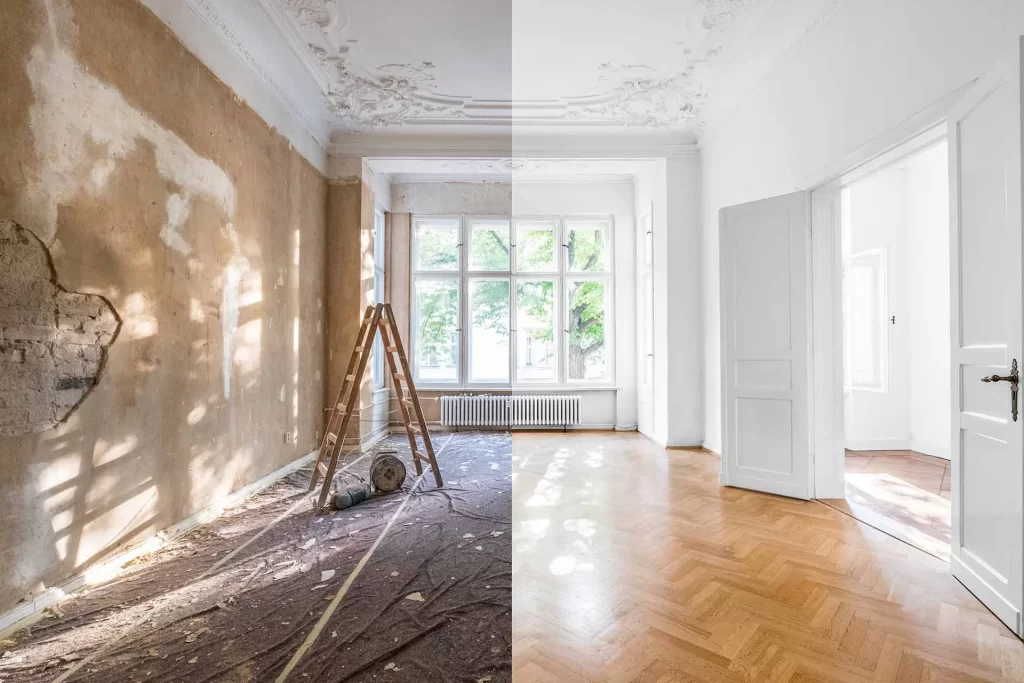Renovating your home can be an exciting journey, transforming your living space into the dream home you’ve always envisioned. However, it’s a process that requires careful planning, consideration, and understanding of several key factors to avoid common pitfalls and ensure a smooth renovation. Here’s what you need to know before you start swinging the hammer.
1. Set a Realistic Budget
One of the most important steps in any renovation project is setting a budget that you can realistically stick to. While it’s easy to get carried away with ideas, be mindful of the costs involved. Start by making a list of all the changes you want to make, then prioritize them. Research the costs of materials, labor, and any additional fees, such as permits or inspections. It’s also wise to set aside 10-20% of your budget for unexpected expenses, as renovations often come with surprises.
2. Understand the Scope of Work
Before beginning any renovation, clearly define the scope of the work. Are you making minor updates, or are you planning a major overhaul? Understanding the full extent of the work will help you communicate effectively with contractors and avoid scope creep, where the project gradually becomes larger and more expensive than originally planned.
3. Choose the Right Contractor
Hiring the right contractor can make or break your renovation project. Take the time to research and interview multiple contractors. Look for professionals with experience in the specific type of renovation you’re planning. Ask for references, and check their credentials and previous work. A good contractor will help guide you through the process, provide valuable insights, and ensure that the project is completed on time and within budget.
4. Get the Necessary Permits
Depending on the extent of your renovation, you may need to obtain permits from local authorities. Permits are essential for ensuring that the work meets building codes and safety regulations. Failing to get the necessary permits can lead to fines, delays, and even the need to undo completed work. Make sure you’re aware of the permits required for your project and that your contractor includes this in their planning.
5. Consider the Timing
Timing is crucial when planning a renovation. Consider the time of year, your family’s schedule, and any upcoming events. For example, renovating your kitchen during the holiday season might not be ideal. Additionally, certain materials or contractors may be in higher demand during specific times of the year, which can affect both cost and availability.

6. Plan for Disruptions
Renovations can be disruptive, especially if you’re renovating key areas like the kitchen or bathroom. Consider how you’ll manage these disruptions. Will you stay in your home during the renovation, or do you need to find temporary accommodation? Planning ahead for how to live around the construction can save a lot of stress.
7. Focus on Quality
When it comes to materials and finishes, focus on quality over quantity. It might be tempting to cut costs by choosing cheaper options, but investing in high-quality materials will pay off in the long run. Durable, high-quality materials not only look better but also last longer, reducing the need for future repairs or replacements.
8. Think About Resale Value
Even if you’re renovating for yourself, it’s wise to consider how the changes you make will affect your home’s resale value. Certain renovations, like updating kitchens and bathrooms, tend to add more value to a home than others. Keep this in mind when deciding where to allocate your budget.
9. Communicate Clearly
Good communication is key to a successful renovation. Keep an open line of communication with your contractor and any other professionals involved in the project. Regular updates and clear instructions can help prevent misunderstandings and ensure that the project stays on track.
10. Be Patient
Finally, patience is essential. Renovations often take longer than expected, and there may be setbacks along the way. By remaining patient and flexible, you’ll be better prepared to handle any challenges that arise and keep the project moving forward smoothly.
Conclusion
Renovating your home is a significant investment of time, money, and energy, but with careful planning and the right approach, it can be a highly rewarding experience. By considering these key factors before you start, you can ensure that your renovation goes as smoothly as possible, resulting in a beautiful, functional space that you’ll enjoy for years to come. For more informative articles, keep following AZCO Real Estate Brokers LLC.










